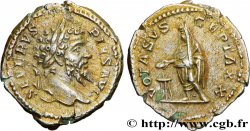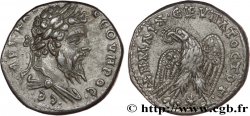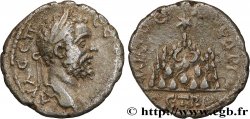v21_2745 - SEPTIMIUS SEVERUS Tetrassaria
MONNAIES 21 (2004)
Starting price : 200.00 €
Estimate : 350.00 €
Realised price : 200.00 €
Number of bids : 1
Maximum bid : 371.00 €
Starting price : 200.00 €
Estimate : 350.00 €
Realised price : 200.00 €
Number of bids : 1
Maximum bid : 371.00 €
Type : Tetrassaria
Date: 238
Mint name / Town : Tomis, Mésie Inférieure
Metal : copper
Diameter : 25,5 mm
Orientation dies : 12 h.
Weight : 8,90 g.
Rarity : R1
Coments on the condition:
Exemplaire de qualité exceptionnelle pour ce type de monnayage avec un portrait magnifique. Revers de toute beauté. Très jolie patine vert noir. Flan irrégulier
Catalogue references :
Obverse
Obverse description : Tête lauré de Septime Sévère à droite (O*).
Obverse legend : [AU] KA SEPTI -SEUHROS (Autokratoros Kaisaros Septimios Seuhros).
Obverse translation : (L’empereur césar Septimius Sévère).
Reverse
Reverse description : Diane drapée, marchant à droite, tirant une flèche de son carquois de la main droite et tenant son arc de la main gauche.
Reverse legend : MHTROP PO-NT TOU [TOMEWS]/ -|D, (Mhtpoplewn Pontou Tomews).
Reverse translation : (Ville près du Pont de Tomis).
Commentary
Pour ce type, les auteurs de l’AMNG ont relevé trois exemplaires.







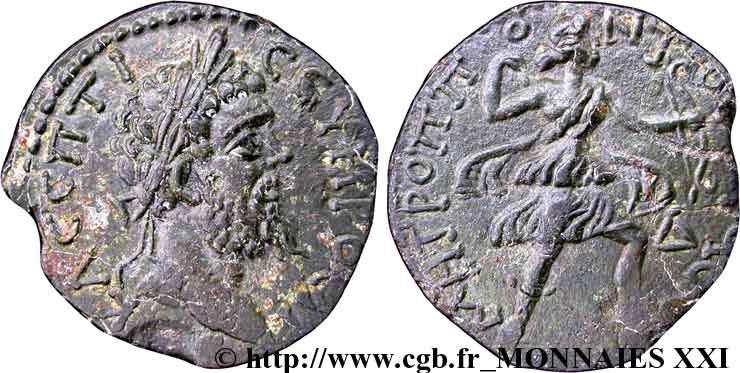
 Report a mistake
Report a mistake Print the page
Print the page Share my selection
Share my selection Ask a question
Ask a question Consign / sell
Consign / sell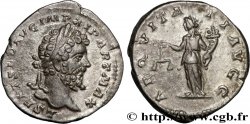
 Full data
Full data
